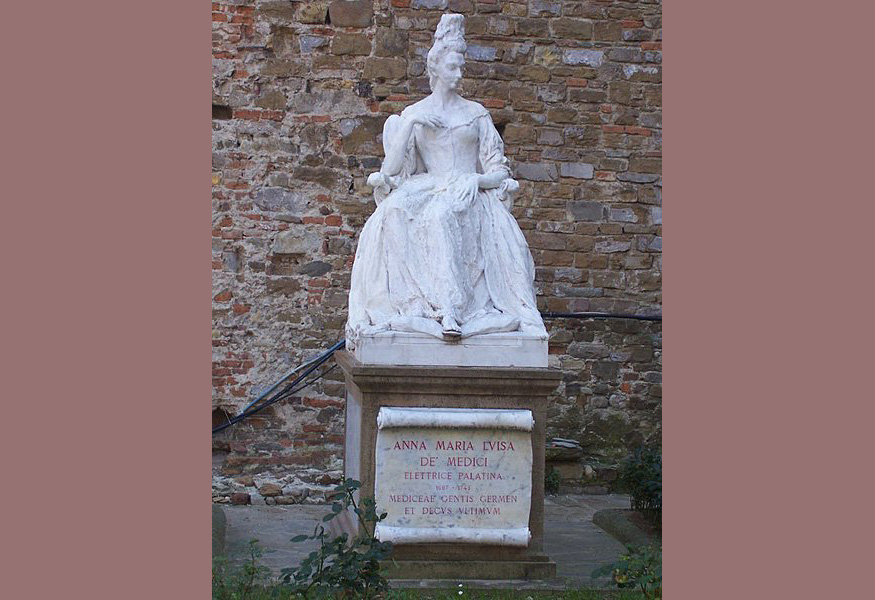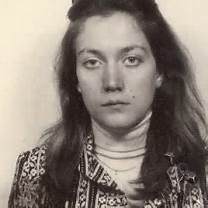Viaggio tra Milano e Firenze: due modi diversi di celebrare le donne
A Milano il monumento alla fiorentina Margherita Hack, mentre la toponomastica a Firenze è tutta maschile, ad eccezione di una statua e di un giardino.

A Milano il monumento alla fiorentina Margherita Hack, mentre la toponomastica a Firenze è tutta maschile, ad eccezione di una statua e di un giardino.

(English translation below)
Su Rewriters, ne ha scritto Denise Villa il 1° luglio ma ai fiorentini è passato inosservato che il 12 giugno a Milano, in Largo Richini e dunque presso la Statale, è stato inaugurato un monumento a Margherita Hack. La città più dinamica d’Italia ha fatto per prima quello a cui avrebbe dovuto pensare da tempo la città natale di Margherita Hack.
Perché sull’Arno una delle più grandi menti scientifiche italiane nacque, ha studiato, è stata campionessa sportiva, si è sposata, e ha lavorato – ad Arcetri – prima di trasferirsi a Trieste. Di Firenze Margherita Hack restò sempre una figlia prediletta, col suo accento mai perso, con la sua difesa della lingua italiana negli ambienti accademici, con quello spirito anticonformista che fu vegetariano e animalista sin da giovane e che si batté per tutta la vita per i diritti civili. Oltre, e non è nemmeno un dettaglio, alla sua sempre proclamata passione sportiva per la Fiorentina.
Ma a quasi dieci anni dalla sua morte, è Milano che pensa di dedicarle una statua, peraltro il primo monumento a una donna scienziato in Italia. Ci avessero pensato a Firenze, sarebbe stato un bel primato, dove invece non le è intestata nemmeno una strada.
La forza, la modernità, di una città, il saper stare al passo con i tempi e con le proprie ambizioni, si misura anche da questo. E così il viaggiatore, o l’indigeno, si può mettere alla ricerca di un monumento cittadino consacrato a un personaggio femminile (figuriamoci… transgender).
Solo in piazza San Lorenzo, lato dietro la chiesa, troverà la statua ad Anna de’ Medici (ne ha anche due interne, una a Palazzo Pitti e un’altra nella cripta di san Lorenzo), che lasciò le opere d’arte dei Medici come bene inalienabile della città.
Lo si osservi con attenzione: a parte questa benemerita statista, il nostro viaggio non approda a niente altro: città con un’altissima densità di statue per metro quadrato, Firenze è costellata da una celebrazione tutta al maschile – da non credere.
Altrove non è meglio, ed Eugenia Romanelli ha già denunciato questa vergogna, che non riguarda solo i monumenti, ma addirittura una toponomastica tutta maschile.
Proseguendo la nostra esplorazione in riva all’Arno, niente di niente, nemmeno un vicolo, ricorda donne fiorentine che si fecero onore nelle arti, come, e sono appena alcuni esempi, Plautina Nelli, pittrice celebrata anche dal Vasari, Francesca Caccini, prima compositrice di opere al mondo, Maddalena Casulana, prima musicista al mondo di cui, vivente, furono pubblicati i lavori.
Non va meglio per alcune grandi donne del Novecento, come Norma Parenti, forse la principale partigiana della Toscana, o le sorelle Mazzetti, che pure vicino a Firenze trascorsero anni cruciali della loro formazione. Neppure fiorentine doc, come Anna Banti od Oriana Fallaci (mentre a Milano, ancora, le hanno dedicato un parco) sono degnate di una strada, non parliamo di un monumento.

Un piccolo giardino – che pochissimi conoscono, e allora invito al pellegrinaggio – porta il nome di Rossella Casini, che pagò con la vita la sua coraggiosa collaborazione con la magistratura. Il giardino si trova sul lungarno Colombo, ed è stato intitolato nel 2020 a questa coraggiosa ragazza fiorentina che nel 1981 fu violentata e uccisa dalla ‘ndrangheta calabrese. Una delle tante donne coraggiose di cui parla la giornalista Francesca Chirico nel suo libro Io Parlo. Donne ribelli in terra di ‘ndrangheta (edizioni Castelvecchi).
Forse questo deplorevole maschilismo, così poco europeo, ha un rapporto col fatto che Firenze non ha mai avuta una sindaca – a differenza di Roma o Milano, Palermo o Napoli, Ancona o Torino. Non a caso l’inaugurazione del giardino Rossella Casini avviene alla presenza dell’allora vicesindaca e assessora alla toponomastica Cristina Giachi.
Ma in tante altre città non è meglio e il viaggio resta molto, molto, al maschile. Rossella credeva nell’amore e nella legalità, ebbe molto coraggio e fu tradita da un uomo a cui si era legata. Mutantis mutandis, un po’ tutte le grandi donne fiorentine hanno avuto più coraggio della loro città, da cui, lasciate all’oblio, sono state tradite.
ENGLISH VERSION
In Milan the monument to the Florentine Margherita Hack, while the toponymy in Florence is entirely male, with the exception of a statue and a garden.
On Rewriters, Denise Villa wrote about it on July 1st but in Florence, it went unnoticed that on June 12 in Milan, in Largo Richini and therefore next to the University, a monument to Margherita Hack was inaugurated. The most dynamic city in Italy was the first to do what the hometown of Margherita Hack should have been thinking for some time. Because it was on the Arno shores that one of the greatest Italian scientific minds was born, studied, was a sports champion, got married, and worked – at the Arcetri observatory – before moving to Trieste. Margherita Hack always remained a favorite daughter of Florence, with her accent never lost, her defense of the Italian language in academic circles, that nonconformist spirit that was a vegetarian and animal rights activist from a young age and who fought all her life for rights civilians. Besides her, and it’s not even a detail, her always proclaimed sporting passion for Fiorentina.
But almost ten years after her death, it is Milan that took the initiative of dedicating a statue to her, which is the first monument to a female scientist in Italy. In Florence, there is not even a street in her name.
The strength, the modernity of a city, able to keep up with the times and its ambitions, is also measured by this culture. And so the traveller, or the indigenous, can start searching for a city monument consecrated to a female character (let’s not dare to think about transgender). Only in Piazza San Lorenzo, behind the church, one will find the statue of Anna de ‘Medici (it also has two inside, one in Palazzo Pitti and another in the crypt of San Lorenzo), who left the Medici collection of art as an inalienable asset of the city.
The visitor should look at it carefully: apart from this well-deserving stateswoman, our journey ends with nothing else, since in a city with a very high density of statues per square meter, Florence is dotted with an all-male celebration – unbelievable.
Elsewhere in Italy is no better, and Eugenia Romanelli has already denounced this shame, which does not only concern the monuments, but even an all-male street and square naming.
Continuing our exploration on the banks of the Arno, nothing at all, not even an alley, recalls Florentines who did honor in the arts, such as, and are just a few examples, Plautina Nelli, the painter also celebrated by Vasari, Francesca Caccini, world-first opera composer, Maddalena Casulana, world-first musician whose works were published alive. It is no better for some great women of the twentieth century, such as Norma Parenti, perhaps the main partisan of Tuscany, or the Mazzetti sisters, who also spent crucial years of their youth near Florence. Not even genuine Florentine, like Anna Banti or Oriana Fallaci (while in Milan, again, has dedicated a park to her) are worthy of a street.
A small garden – which very few know of, and therefore an invitation to pilgrimage – bears the name of Rossella Casini, who paid for her courageous collaboration with the judiciary with her life. The garden is located on Lungarno Colombo, and was named in 2020 to this brave Florentine girl who in 1981 was raped and killed by the Calabrian ‘Ndrangheta. One of the many courageous women mentioned by the journalist Francesca Chirico in her book Io Parlo. Donne ribelli in terra di ‘Ndrangheta (Castelvecchi editions).
Perhaps this deplorable male chauvinism, so anti-European, has a connection with the fact that Florence never had a woman mayor – unlike Rome or Milan, Palermo or Naples, Ancona or Turin. It is no coincidence that the inauguration of the Rossella Casini garden takes place in the presence of the then deputy mayor and councilor for toponymy Cristina Giachi.
Yet, in many other cities, the situation is not different, and the visit remains very much a male one. Rosella believed in love and lawfulness, she had a lot of courage and she was betrayed by the man she was in life with. Mutantis mutandis, all the great Florentine women have had more courage than local politicians, from whom, left to oblivion, they have been betrayed.
